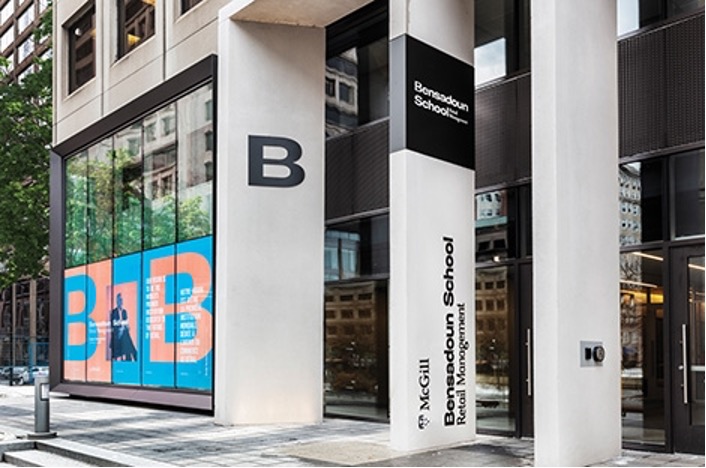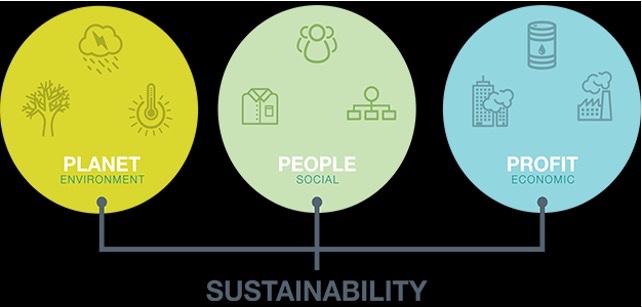COVID-19: A catalyst or a hindrance for retail sustainability initiatives?
February 22, 2021Article from Odile Barbeau, Laura Cohendet, Maxime C. Cohen, Saibal Ray
Bensadoun School of Retail Management

As consumers express a growing preference for sustainable business practices, the COVID-19 pandemic has severely tested the ability of global retailers to remain sustainable and profitable at the same time. Those who find a way to achieve both aims will gain a sharp edge over their competitors in the post-pandemic landscape.
Even at the height of a global health crisis, consumers are more focused on sustainability than ever before.
According to a global BCG survey, more than three out of four respondents are as concerned about environmental issues as they are about health issues. A whopping 87% of respondents believe that companies should ramp up their efforts to offer more environmentally conscious products, services, and operations. On the investment side, the opening months of 2020 saw record-level investments in environmental, social, and governance (ESG) funds, 70% of which outperformed other funds.
Clearly, public support for efforts to improve sustainability, particularly those that combat climate change, is here to stay.
Two steps back
While global retailers recognize the need to embrace sustainability in their business models, the COVID-19 pandemic has chipped away at their commitment in the past year. A recent Bloomberg analysis found that sustainability-related discussions plummeted by 50% during Q1 of 2020 earning calls relative to the previous quarter across S&P 500 companies. Discussions about liquidity, cash flow, debt payments, and contingency plans topped the agenda, while expenditures deemed non-essential, including sustainability initiatives, fell by the wayside.
A striking example was observed in the food industry. In 2020, most restaurants returned to plastic containers instead of reusable and dramatically increased their waste output from use of personal protective equipment. In fashion, a significant dip in sales has prompted major players to adopt short-term cost-cutting measures, putting sustainability initiatives on the chopping block. The explosion in e-commerce, particularly in the food, fashion, and technology sectors, has generated a mountain of packaging waste and a rise in carbon emissions from deliveries. No retail sector has escaped difficult choices as the pandemic rages on.
The upside of COVID-19
On the other side of the coin, the pandemic has catalyzed positive developments in sustainabilty across retail sectors. The same food delivery apps that generate packaging waste have the opportunity to nudge consumers toward a more climate-friendly diet, which can reduce emissions by up to 70%. Fashion retailers, who once advanced the polluting “fast fashion” trend, have a new incentive to reuse apparel for another season and reduce the number of events in their traditional fashion show calendar. When e-commerce giants like Amazon and Walmart package and ship multiple items at a time and optimize delivery routes to improve energy efficiency, they aim to help ensure that e-commerce consumes less energy than shopping at brick-and-mortar locations.

Sustainability efforts within the tech sector have also experienced notable progress. Tech companies have largely experienced an increase in demand during the pandemic as consumers rely heavily on online platforms for work and leisure. While consumer demand dropped in the first quarter of 2020, it rebounded over the third and fourth quarters. Consumers are not only demanding innovation at a faster pace, but they are also insisting that tech companies serve the greater good with an increased focus on health, medicine, safety, and privacy. Silicon Valley heavyweights are taking notice. A study conducted by CSE reported that in 2016, 29% of Silicon Valley tech businesses created a sustainability report compared to 60% in 2019. If the trend holds, tech companies will continue to respond to heightened social scrutiny with more robust sustainability efforts.
Across sectors, companies that have managed to prioritize sustainability throughout the pandemic are reaping the rewards. According to research from IRI and the NYU Stern Center for Sustainable Business, seven out of ten consumers said that they are buying more eco-friendly products as they did prior to the pandemic. Meat substitute sales rose 200% year-over-year in April 2020, while in fashion, the apparel resale business grew 21 times faster than the sale of new clothing.
Looking forward
If they can weather the initial wave of disruption caused by COVID-19, retailers that embrace environmentally-conscious practices have an inherent long-term advantage over their competitors. While the pandemic threw a wrench in many retail sustainability initiatives, the rapid advance of e-commerce since the pandemic began has carved out fresh opportunities for sustainable retail innovations.

Many global retailers have not regained enough financial footing to focus on sustainability as heavily as they would like to, but they are waking up to the reality that sustainability is a mandate, not an option, for brands that hope to expand their consumer base. As they continue to respond to the changing needs of consumers, global retailers will discover an increasingly powerful role to play in advancing sustainability.
The full article can be found here.




